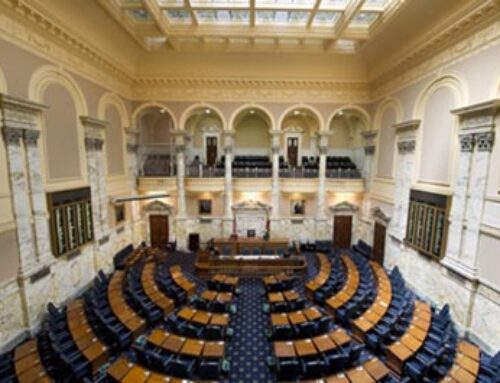On Thursday the Board of Revenue Estimates revised its fiscal 2024 and 2025 estimates to reflect a $120 million and $134.9 million negative change in estimated tax revenues. Slowing withholding collections is the cause of reductions in the personal income tax forecast. Additionally, fiscal 2024 sales tax estimates were revised down by $34.7 million.
There is a growing disconnect between this new revenue data and existing economic data. Economic data does not reflect the sharp deceleration in withholding income tax revenues. Given this disconnect and a lack of uncertainty, the Board of Revenue Estimates recommended a “middle-ground” approach for estimating revenues. There could be a significant downside risk if the downward trend in withholding continues.
Factors contributing to this downward revenue trend could be the outsized impact on changes in federal economic policies. Post pandemic federal economic assistance has slowed and interest rates have gone up while Maryland has felt a lack of recovery in labor force participation.
Lawmakers had varying reactions to Thursday’s estimates as they are already working with a very tight budget. Senate Budget and Taxation Committee Chair, Guy Guzzone suggested a plan that taps into capital gains taxes rather than implementing major tax increases.
House Appropriations Chair, Ben Barnes and House Ways and Means Chair, Vanessa Atterbeary have used this revenue estimate news to renew their calls to pass measures to increase taxes. Atterbeary has voiced her concerns that an inability to increase revenues could result in cuts to key parts of Maryland’s Education Reform Plan laid out in the Blueprint for Maryland’s Future.
“For too long around here, the phrase fiscal responsibility has been used to justify taking cuts,” she said. “More recently, it has been used not to address a looming issue seemingly out of fear,” said Atterbeary.
House Minority leader, Jason Buckel, and other republicans have criticized their opposition’s calls to increase taxes to solve this problem.
“Our economic indicators and our tax data are telling different stories, calling into question the health of our overall economy. What we do know is that revenues indicating the health of Marylanders’ wallets — both sales and personal income taxes — are down. Families have less income and less money to spend. This is something the House of Delegates must be aware of as our Democratic colleagues seem hell-bent on increasing Marylanders’ tax burden,” said Buckel.





